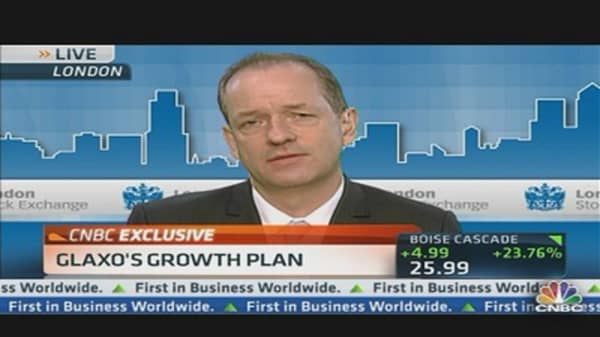Witty's predicting mid-single-digit declines in 2013, with that already factored into Glaxo's forecast for earnings per share growth of 3 to 4 percent.
Glaxo is also accelerating its "change program" to cut costs. "There are really two major areas of focus of this change program," the CEO said. "One is to make sure we right size our European pharmaceutical business in response to the pricing pressure we've seen from European governments."
The other, Witty said, is to change the company's technology platforms to reduce manufacturing costs, improve the the carbon footprint, cut inventories, and improve cycle time.
The drug company's product pipeline is also filling up, with six new products under regulatory review. Glaxo expects to launch around 15 new products globally over the next three years, according to the company's earnings report. It is also aiming to improve its research and development returns to around 14 percent over the long term.
(Read More: Drug Pipelines Begin to Fill for Big Pharma)
Glaxo is considering selling its sports drinks business as well, but told CNBC that it has no plans to follow some rivals like Pfizer and transform into a less-diversified company. Last week, Pfizer's animal health subsidiary Zoetis raised $2.2 billion in its initial public offering.
Witty said there are strong synergies binding Glaxo's three key divisions — pharmaceuticals, vaccines, and consumer health.
The company's emerging market pharma and consumer business are also strong, Witty said, and now account for about 40 percent of the entire group.
"We are a big believer in bound together synergistic businesses," the CEO said, "We are against diversification for the sake of it."




